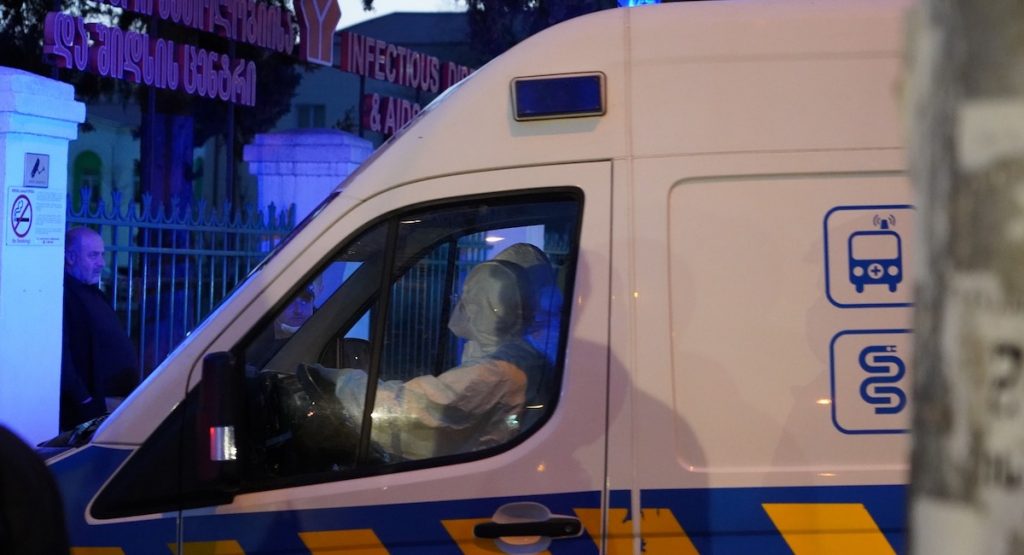Georgia: coronavirus patients from the other side of territorial conflict
It is increasingly difficult for Georgia to cope with the COVID-19 epidemic, but it continues to help Abkhazia and South Ossetia – breakaway republics whose authorities want nothing to do with Tbilisi, but whose populations are in dire need of qualified medical care.
Coronavirus is raging in Georgia – the number of infected people began to rise sharply in September, during the peak holiday season for local residents.
On October 15, a record increase in new cases was confirmed in the country – 919 patients were diagnosed with the virus. The most large-scale outbreaks of infection were recorded in the very resort destination beloved by Georgians – on the Black Sea coast of the Adjara region.
•Why don’t doctors want to treat coronavirus patients in Abkhazia?
•Anti-crisis farming: two stories from Abkhazia
Adjara is having the hardest time fighting the epidemic today. Georgian doctors warn that winter will be difficult. Due to the fact that the number of cases is increasing daily, they stopped hospitalizing everyone with a positive test for COVID-19 (as they used to quite recently in Georgia): people with mild symptoms are now being treated in specially converted hotels.
Despite this alarming situation, Georgia continues to receive patients from Abkhazia and South Ossetia. Within the framework of the state program, which the Georgian authorities launched in 2010, the leading Georgian clinics cured 5,000 patients from Abkhazia and 3,000 patients from South Ossetia free of charge. According to the Georgian Ministry of Health, around 10 million US dollars have been spent on the program.
The programme does not disclose the number of residents of unrecognized Abkhazia and South Ossetia who have applied for help due to the coronavirus. Dozens of COVID patients from the breakaway republics are being treated in Georgia, – Amiran Gamkrelidze, head of the Georgian Center for Disease Control, told Echo Kavkaza.

Photo: David Pipia, JAMnews
“Patients are transferred from Abkhazia more intensively [than from South Ossetia]. I cannot name the number, there are several dozen […] These people are in different hospitals, depending on their condition.”
Gamkrelidze added that Georgian doctors are trying to help their Abkhaz colleagues with consultations – last spring they held a webinar for Abkhaz doctors with the mediation of UNICEF. The head of the Center for Disease Control himself often consults Abkhaz doctors by phone:
“Unfortunately, there is relatively less such contact with the Tskhinvali region. But patients are brought over from there too,” Gamkrelidze said.
The epidemic in Abkhazia is getting worse. There were not enough doctors even several weeks ago, when there were very few patients.
This week, Abkhaz Defense Minister Vladimir Anua asked his Russian counterpart Sergei Shoigu to open a 500-bed field hospital in Abkhazia to treat patients with coronavirus. This happened after the local opposition criticized the authorities for insufficient measures to combat the epidemic.
Many local residents admit that they cannot receive the same qualified medical care in Abkhazia as in Georgian clinics. Relations between Tbilisi and Abkhazia remain very tense, so people mostly turn to Georgian doctors in really desperate situations – cancer, HIV, hepatitis, after serious accidents. Nowadays, this list includes COVID-19.
Many Abkhaz patients and their relatives are grateful – some of them publicly expressed their gratitude. However, public opinion in Abkhazia condemns people who openly accepted the help of the Georgian side and, all the more, talk about it on social media.
Leaving Abkhazia for treatment in Georgia is not an easy task. Those who succeed complain about the red tape – usually crossing the administrative border (Abkhazia and South Ossetia call it the state border) takes a long time, sometimes so much that patients with emergencies even die before they can cross to the territory controlled by the Georgian authorities.
The South Ossetian authorities are even less willing to release their residents for treatment in Tbilisi. In 2013, Tskhinvali banned residents of the republic from seeking treatment at clinics located on territory controlled by Georgia.



















